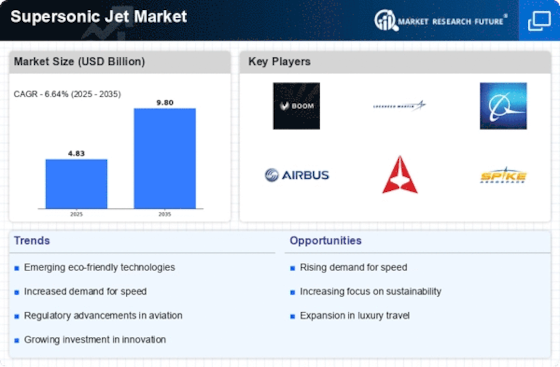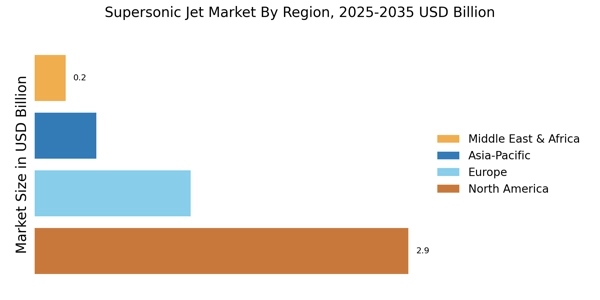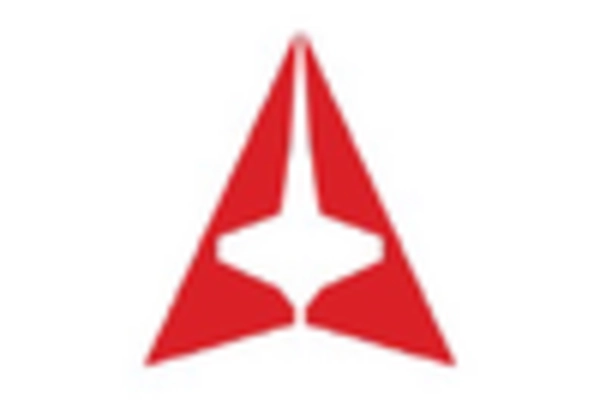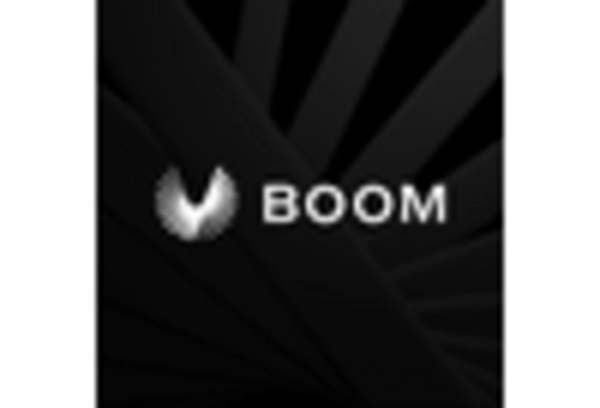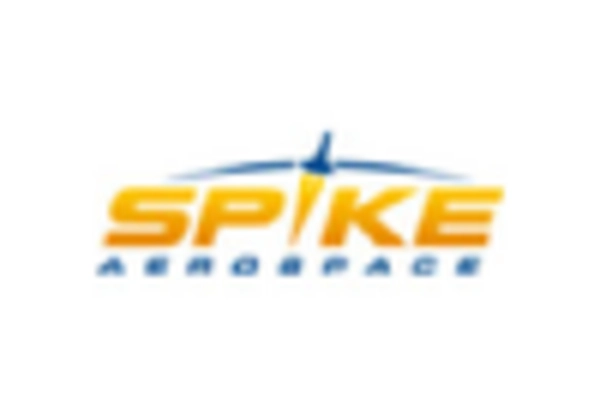Increased Demand for Faster Travel
The Supersonic Jet Market is currently experiencing a surge in demand for faster travel options. Business travelers and affluent individuals are increasingly seeking ways to reduce travel time, which has led to a renewed interest in supersonic jets. According to recent estimates, the market for supersonic travel could reach USD 6 billion by 2030, driven by the desire for efficiency and convenience. This demand is further fueled by the growing number of international business meetings and the need for quick transportation across continents. As airlines and manufacturers respond to this trend, the Supersonic Jet Market is likely to see significant investments in new technologies and aircraft designs that cater to this need for speed.
Technological Innovations in Aircraft Design
Technological advancements are playing a pivotal role in shaping the Supersonic Jet Market. Innovations in aerodynamics, materials science, and propulsion systems are enabling the development of more efficient and environmentally friendly supersonic jets. For instance, new composite materials are reducing weight while enhancing structural integrity, which is crucial for supersonic flight. Additionally, advancements in engine technology are leading to quieter operations, addressing noise concerns that have historically plagued supersonic travel. The market is projected to grow as these technologies mature, with estimates suggesting a compound annual growth rate of 15% over the next decade. This technological evolution is essential for the Supersonic Jet Market to meet both consumer expectations and regulatory requirements.
Regulatory Changes Favoring Supersonic Travel
The regulatory landscape surrounding supersonic travel is evolving, which is positively impacting the Supersonic Jet Market. Recent discussions among aviation authorities have indicated a willingness to revisit and potentially relax restrictions on supersonic flight over land. This shift could open new routes and increase the viability of commercial supersonic travel. Furthermore, regulatory bodies are exploring frameworks that would allow for the introduction of quieter supersonic jets, which could mitigate noise concerns. As regulations adapt to technological advancements, the Supersonic Jet Market may witness a resurgence in commercial interest, leading to increased competition and innovation.
Environmental Considerations and Sustainability
Sustainability is becoming increasingly important within the Supersonic Jet Market. As environmental concerns rise, manufacturers are focusing on developing jets that minimize carbon emissions and fuel consumption. The industry is exploring alternative fuels and hybrid propulsion systems to reduce the ecological footprint of supersonic travel. Recent studies indicate that sustainable aviation fuels could reduce lifecycle emissions by up to 80%. This shift towards greener technologies is not only a response to regulatory pressures but also aligns with consumer preferences for environmentally responsible travel options. As sustainability becomes a key driver, the Supersonic Jet Market is likely to evolve, attracting investment from eco-conscious stakeholders.
Investment and Partnerships in the Aviation Sector
Investment in the Supersonic Jet Market is on the rise, with numerous partnerships forming between aerospace companies and technology firms. These collaborations aim to accelerate the development of next-generation supersonic aircraft. Recent reports suggest that venture capital funding in aviation technology has increased by over 30% in the past year, indicating strong investor confidence in the future of supersonic travel. Major aerospace manufacturers are also forming alliances with startups specializing in advanced materials and propulsion systems. This influx of capital and expertise is likely to drive innovation and reduce the time to market for new supersonic jets, thereby enhancing the overall competitiveness of the Supersonic Jet Market.


